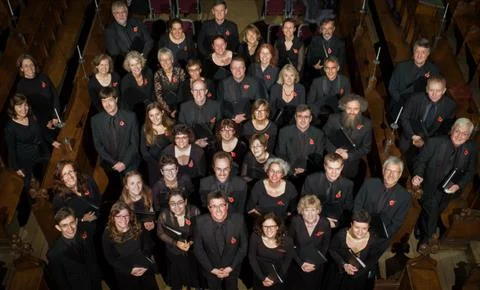VERDI'S MACBETH AT THE ARTS THEATRE
This opera is high art at its most profound – and terrifying.
Macbeth, Shakespeare’s rogue lordling led into moral corruption by his own ambition - cajoled and coaxed by his scornful wife, soon loses all sense of his own humanity and descends into brutality. In last night’s wonderful performance of Verdi’s masterpiece at the Arts theatre we followed the fortunes of a confused but ruthless man – and his malevolent wife – into despair and death. As the story unfurled and the overwhelming poise and projection of the singers seared into our souls, its moral centre became horribly clear. Shakespeare’s play emerges as a psychodrama with orchestration designed to deepen the tragedy.
The set reveals a grey modern fortification, sheets of concrete with apertures keep the action in continuous play. And the contemporary time zone works - Macbeth in super-smart army officer uniform – and more arrestingly, his men in khaki fatigues. It could not help but put us in mind of the relentless murderousness of a regime driven by the egocentrism of one man – and his plausible wife. Cue the Assads, where a once admired wife (featured on the cover of Vogue no less) joins her husband in urging on a welter of destruction. This production was nothing if not horribly relevant. Verdi might have fitted it for 1848 and its bloody rebellions in Italy, (where militant women often fought on the barricades) but the characters in their descent from decency fit today’s world like a glove. Even our own country with its schisms flashed into the mind even as the refugees piled up against each other on stage despairing, completely lost as to where to go next.
It might seem a far cry from Shakespeare’s play but it was in fact very close in spirit and language.
The intensifying ingredient is of course the music. The orchestra under Gerry Cornelius was wonderfully muted and melodic. The vocal mastery of Verdi took the story to new depths of emotional depravity even as the principal singers dazzled the audience with their vocal range.
Lady Macbeth, a beautiful statuesque Madeleine Pierard claimed the stage – and her command of tone and mood enhance the Shakespeare character. Verdi uses the music particularly in duets with her husband, to convey how discordant the couple are, right from the start, where they plot the cold-blooded assassination of visiting King Duncan. Only a composer with the genius of Verdi could this be so subtly wrought and only an artist as completely in control of her vocal range as Pierard could pull it off – a further reason for opera lovers to cancel everything this week to hear the English Touring Opera at the top of their game in a full live performance. Macbeth, naturally, is the emotionally savage centre of the opera. Grant Doyle not only brings complexity to the lead role but he acts – and sings - with devastating skill. The scene where he sees Banquo’s ghost at the feast (a rather tense cocktail party) turns electric as he reels with disbelief at the sight of the horror before him – the friend he has had murdered. We looked on aghast as did the party going courtiers. Banquo Andrew Slater is a striking noble figure aware of the mayhem let loose suddenly in the confines of the castle – but too late to save himself from a ghastly death. His young son Fleance escapes the murder scene. Amar Muchhaia as MacDuff is a joy to hear with an entrancing tenor voice – even if as he bemoans the slaughter of his wife and children, he brings a pang of real humanity to the role.
Witches are an essential ingredient in Macbeth, and Verdi has them in number, arrayed in Handmaid’s Tale style robes and singing as a chorus. It is effective and for once does soften the relentless gloom of the action – at least audibly.
This is a tour de force of an opera, brilliant with musicians of tremendous skill to render a work not enough staged but memorable in its performance at this level of artistic accomplishment.
Verdi didn’t admire Shakespeare, he loved him. And of all his works Macbeth appealed to him the most ‘This tragedy is one of the greatest creations of man” he wrote, ”If we can’t make something great out it, let us at least try and do something out of the ordinary”. Last night he certainly did that







